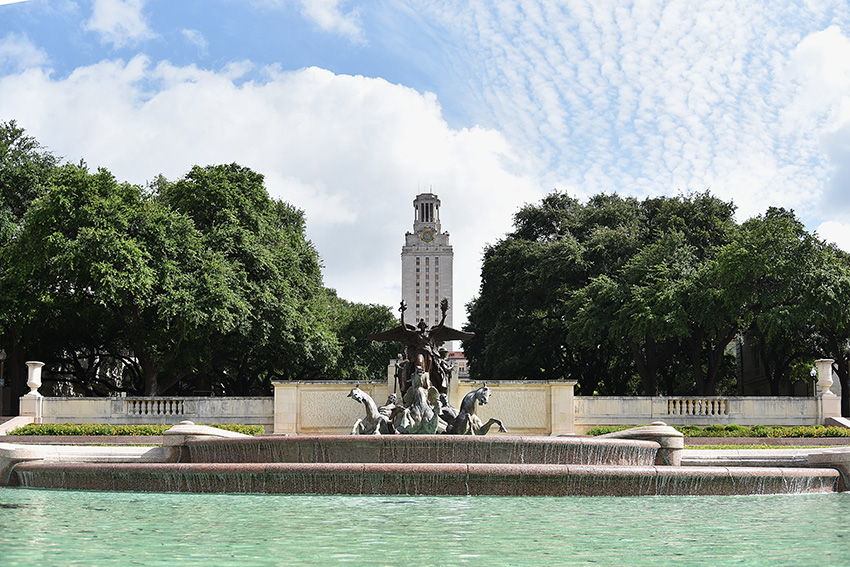Houston Chronicle reporter Rebecca Elliott checked herself into a hotel in Greenspoint as Hurricane Harvey made landfall in Houston. The flood-prone neighborhood had anticipated the Category 4 hurricane, but the local Red Cross that Elliott visited did not reflect that.
“The Red Cross hadn’t staged enough equipment there and couldn’t get supplies in there once the water started rising,” Elliott said. “Houston anticipated this, but resources at the beginning were not there, and they continue to not be there.”
Elliot shared her experience last Friday as part of the After the Storm panel, which focused on building equitable communities after Hurricane Harvey. The event was presented by the UT Opportunity Forum, a group of interdisciplinary faculty who aim to expand opportunities for low income Texans.
“It’s important to recognize the scope of this disaster, as well as the differences in the kinds of impacts that different communities are experiencing,” said Shannon Van Zandt, Texas A&M University landscape architecture and urban planning professor. “We have high levels of poverty, as well as a high level of generally socially vulnerable populations that are going to have a lot of difficulty recovering.”
Van Zandt said people are concentrated in particular ways because of their sociodemographic characteristics, and those patterns will increase their exposure to flooding and other hazards.
Texas Housers’ Houston co-director Chrishelle Palay agreed. She said the attention needs to be on smaller communities that were heavily affected, such as Beaumont and Port Arthur.
“We have to make sure we have safe temporary housing so people can reconnect with their families and the community at large,” Palay said. “We have to ensure that our government programs are transparent, accountable and abide by civil rights laws.”
Although the panelists debated whether or not the future for affected low-income families looked positive or negative, they all agreed that there was still a need to be met.
“The common thread of this is that people have not been treated equitably, and we need to make sure that that’s the number one priority if we are going to rebuild fairly,” Palay said.
Jose Rubio-Zepeda, community planning and Latin American studies graduate student, left the panel with a new perspective on dealing with disparity after a disaster.
“Instead of making it an issue of funding, it’s an issue of people’s lives,” Rubio-Zepeda said. “We want to frame it differently, thinking about people’s livelihood being affected versus how much money we need to allocate for this specific community. Having that mentality would change things.”





















